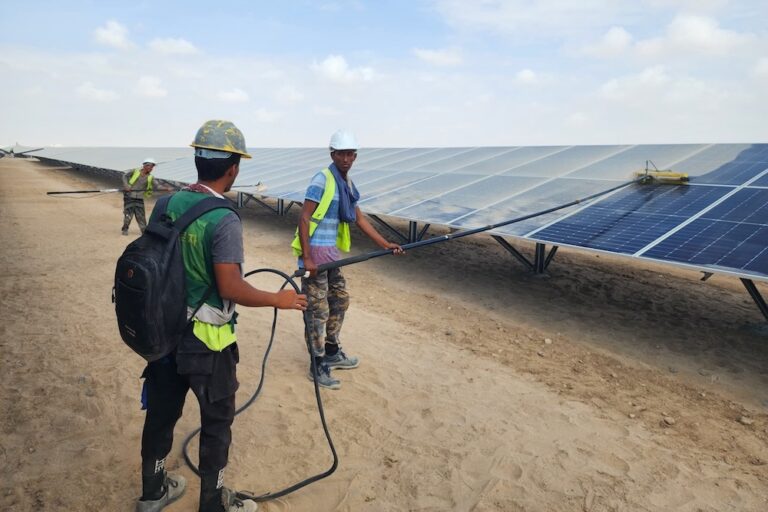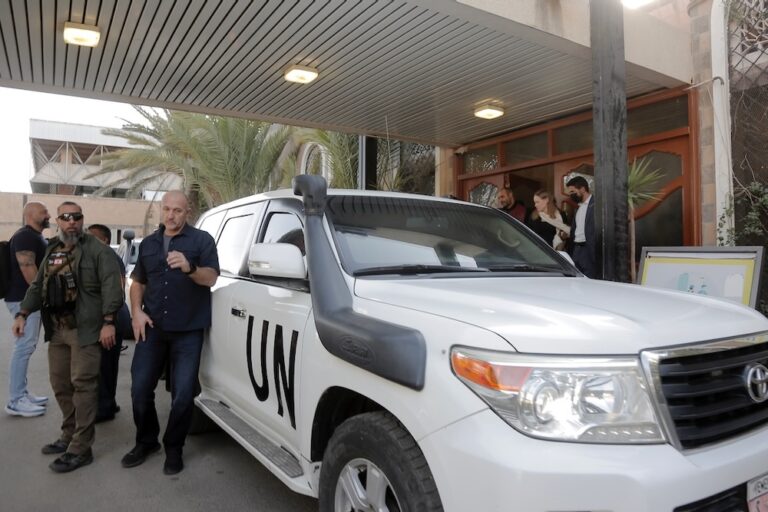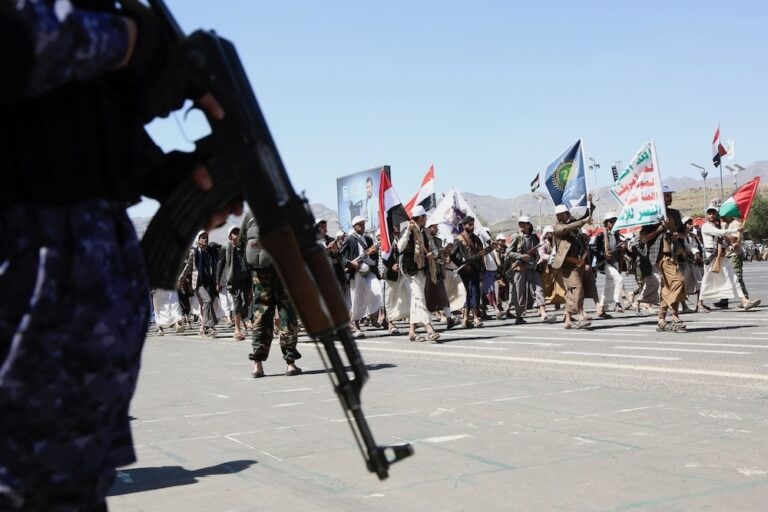Al Azal TV correspondent Amir Bou Owaydan, Yemen Al Yawm correspondent Mohamed Al Makri, and cameraman Akram al-Yamani were kidnapped on 12 October in Mukalla city, Hadramout region while covering a protest against the presence of al-Qaeda in the city.
This statement was originally published on ifj.org on 14 September 2015.
The International Federation of Journalists (IFJ) has today joined its affiliate, the Yemen Journalists’ Syndicate (YJS), in calling for the immediate release of three Yemen media workers kidnapped by al-Qaeda on 12 October.
According to the YJS’s reports, Al Azal TV correspondent Amir Bou Owaydan, Yemen Al Yawm correspondent Mohamed Al Makri, and cameraman Akram al-Yamani were kidnapped in Mukalla city, Hadramout region while covering a protest against the presence of al-Qaeda in the city.
The IFJ backs the YJS in condemning the incident and in demanding the immediate release of these colleagues as well as the protection of their lives.
“These latest kidnappings remind us that journalists have sadly become pawns in wider geopolitical fights,” said IFJ’s President, Jim Boumelha. “Once again, we stand by our Yemeni colleagues and their families in their daily suffering and their duty to report. We urge their captors to immediately release them and, in the meantime, to ensure their physical safety.”
This is the first time that al-Qaeda takes reporters hostages in the country since the kidnapping in 2013 of the US photographer Luke Somers, who sadly lost his life last December during a failed attempt by the US Special Forces to release him. The group had never kidnapped any local journalist before.
Nine journalists have been killed so far in 2015 in Yemen, according to IFJ´s statistics, as a consequence of the fight between Houthi rebels and the Saudi-led coalition. These three kidnapped media workers bring to 17 the number of journalists and media staff who are believed to be held in the country, mostly by Houthi rebels. They include nine who were kidnapped by the rebels on 9 June at a hotel in the capital, Sana’a, from which they were reporting.
The IFJ is highly concerned by the deterioration of press freedom and the safety of media workers in Yemen. To this end, IFJ launched a campaign last month to increase awareness worldwide about their situation. One of the main actions is a letter to the Houthi leader, with the Special Representative of UN Secretary General for Yemen copied in.
You can find more details about the campaign here.
The International Federation of Journalists is the world’s largest organisation of journalists. First established in 1926, it represents around 600,000 journalists in 179 unions and associations accross 139 countries worldwide. You can follow them on Twitter here and Facebook.


